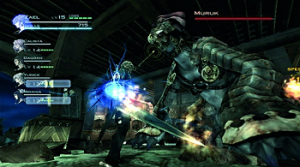
The American Psychological Association’s Diagnostic Statistical Manual 5 describes Narcissistic Personality Disorder in the following way:
A pervasive pattern of grandiosity (in fantasy or behavior), need for admiration, and lack of empathy, beginning by early adulthood and present in a variety of contexts, as indicated by five (or more) of the following:
(1) Has a grandiose sense of self-importance (e.g., exaggerates achievements and talents, expects to be recognized as superior without commensurate achievements).
(2) Is preoccupied with fantasies of unlimited success, power, brilliance, beauty, or ideal love.
(3) Believes that he or she is “special” and unique and can only be understood by, or should associate with, other special or high-status people (or institutions).
(4) Requires excessive admiration.
(5) Has a sense of entitlement, i.e., unreasonable expectations of especially favorable treatment or automatic compliance with his or her expectations.
(6) Is interpersonally exploitative, i.e., takes advantage of others to achieve his or her own ends.
(7) Lacks empathy: is unwilling to recognize or identify with the feelings and needs of others.
(8) Is often envious of others or believes that others are envious of him or her.
(9) Shows arrogant, haughty behaviors or attitudes.
Not everyone who has some of these identified traits has narcissistic personality disorder. When you look down the list of descriptors – you might actually find yourself or someone you love sharing a few of the identified traits, some of the time.
We all fall on a continuum somewhere between healthy and unhealthy. And in a moments snapshot, we might look unhealthy if we were in a crisis, or we might look healthy if we’re giving a sermon in church.
That’s why it’s important to look at pervasive patterns because all of us have issues.
Everyone has sin patterns, and everyone has problems. In some way, all of us are touched and damaged by sin, both our own sin as well as the sin of others against us.
For example: wanting to feel special and be admired is one of the traits of NPD. But a bride might feel this way on her wedding day or you might feel extra special if your friends threw you a big birthday bash for your 40th birthday.
That’s not unhealthy narcissism or signs of NPD. Why not? Because you don’t always feel extra special. It’s not a pattern in the way you think about yourself.
Entitlement is another characteristic of narcissism and healthy narcissism might show itself when you believe you are entitled or deserving of special treatment if you were going through chemotherapy or in the emergency room after an accident or even you just won the lottery.
But soon, you go back to not feeling so entitled of extra special treatment and are also willing to give other people special attention in a time of need or blessing.
However, a person diagnosed with NPD has a felt NEED for constant admiration and ego stroking. They crave people who will admire them and make them feel special a lot. He or she also can’t handle criticism or negative feedback, because that would take the narcissist off a spot of specialness.
A person diagnosed with NPD refuses to take any responsibility for wrongdoing because that would require humility and the ability to recognize his/her own foibles. However, there are those who are not diagnosed with NPD who also find it hard to admit his or her faults and are extremely defensive when criticized.
A person diagnosed with NPD believes he or she is always right, wants to win, and is better than other people. That means that in every relationship with someone who has NPD, there is a one-up characteristic often displayed by an attitude of “I am better than you. I am more important, more special, more entitled, and more right than you are.” You can imagine the problems that come up when trying to live peaceably and wisely with someone who thinks like that.
Advertisements Share this:




